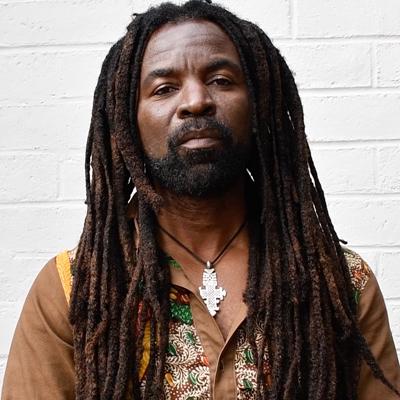Ghanaian music legend and Grammy-nominated artist, Rocky Dawuni, has delivered a thought-provoking message on spirituality, identity, and Black consciousness, stating that Africans must embrace a vision of God that reflects their own image and heritage.
Speaking on Starr Chat with Bola Ray on Starr 103.5 FM on Thursday, July 17, 2025, Dawuni reflected on the spiritual foundations that have shaped both his life and his music.
“I believe that if God created man in His own image, you can’t be a Black man and worship a white God,” he said. “The white man will worship God in the white image. So the sense of elevating the identity of me as a Black man, me as an African, was a very key part of my kind of projection… and then the message aspect of my music.”
Dawuni explained that his spiritual journey began early, even before music became central in his life. As a child in the military barracks, he started a church at the age of seven, gathering fellow children to build a place of worship and preach the Bible.
“Every night I read the Bible… I actually started a church when I was a kid in the barrack,” he recalled. “I was like 7 years old… I got all the kids to go and cut palm fronds, and they built the church in the back.”
His interest in religion continued through catechism classes with the Catholic Church and eventually grew into a global spiritual pursuit. Dawuni shared that his music has taken him to sacred sites across faith traditions, including the Vatican, where he and his band headlined Journey of the Itineraries of the Soul, as well as visits to Al-Aqsa Mosque, the Well of Souls, and the Wailing Wall.
“My music is informed by spirituality,” he said. “Spirituality is finding wherever God manifested in God’s diversity. And I try to find God. That’s why when I see everybody, it’s like my brother. I don’t see tribal differences. I don’t see racial differences. I don’t see national differences—because I see God in everybody.”
For Dawuni, faith and music are inseparable. He uses both to champion dignity, unity, and the African identity on the world stage.

